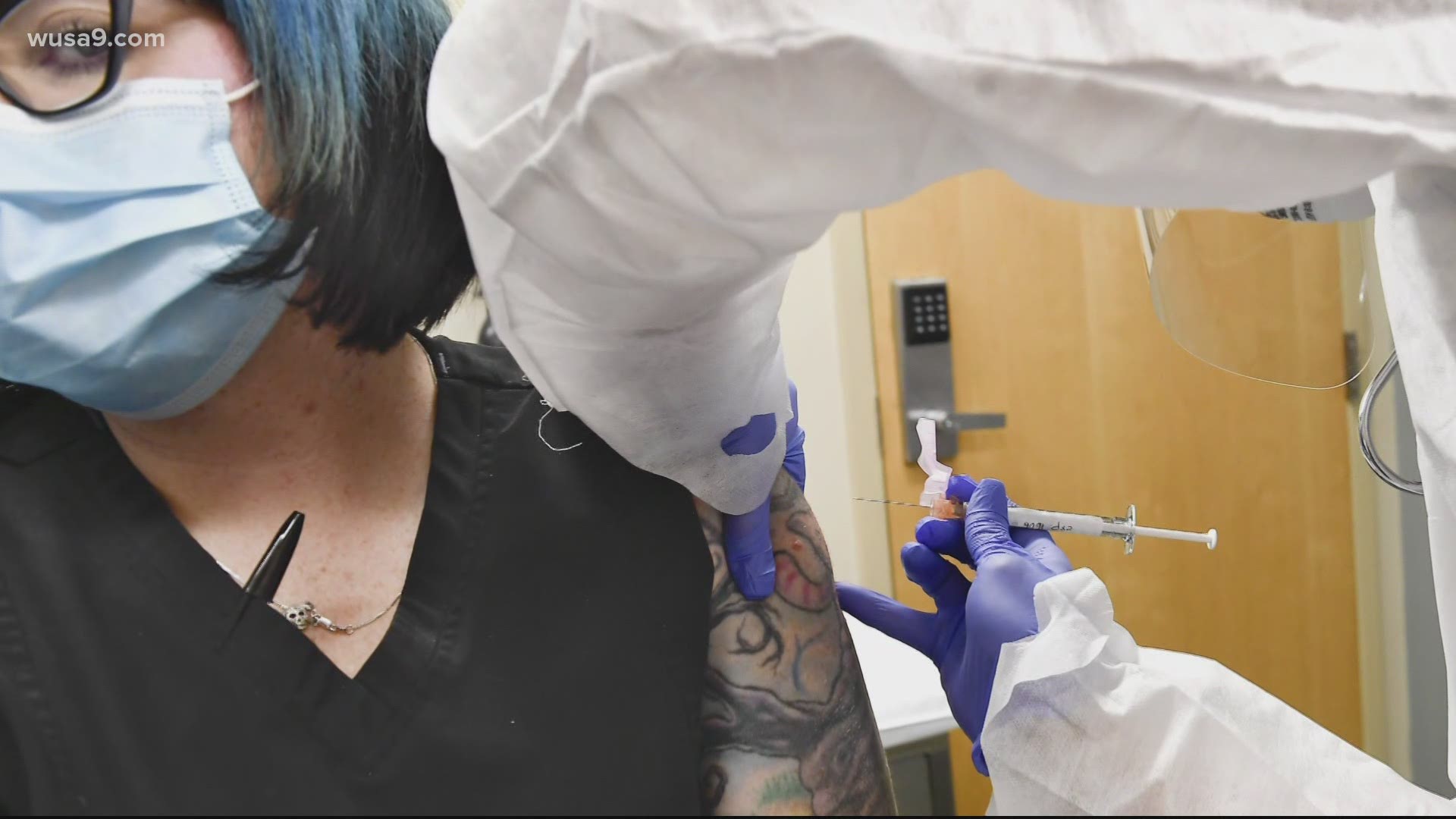WASHINGTON — Even after emergency use of Moderna’s coronavirus vaccine is authorized, which could be as early as Friday, George Washington University will continue its trial study of the vaccine, potentially administering doses to participants who originally received a placebo.
GW researchers led one of the 100 clinical testing sites for the Moderna vaccine starting in August, with doctors unaware of which participants received the vaccine and who among the hundreds of enrollees received a placebo injection.
“Moderna has proposed that we unblind everyone in the trial, and offer the vaccine to the people who were originally randomized to the placebo group,” Dr. David Diemert, principal investigator of GW’s Moderna trial, said. “The Moderna trial will not stop. If the FDA agrees with the plan, we’re going to bring back all 349 of our volunteers here, and if they agree, unblind them. If they want, we’ll give them the first dose of the vaccine if they originally got placebo.”
The decision to unblind the trial would be made with the vaccine’s expected emergency use authorization, not during Thursday’s FDA advisory committee vote.
Diemert noted how the ongoing GW trial will look to answer a question essential for a return to normalcy – whether the Moderna vaccine can break community transmission of coronavirus, especially among people who show no symptoms.
“The big question that still remains to be answered is, whether or not the vaccine, in addition to preventing symptomatic covid, also prevents asymptomatic acquisition of the virus,” Diemert said. “So, we’re going to also be doing nose swabs on everyone, to see whether or not the vaccine also is preventing transmission in the community.”
Dr. Marc Siegel served as co-principal investigator for the GW Moderna trial, and expressed optimism that the vaccine will expand the number of vaccination sites to a multitude of smaller clinical settings.
“The Pfizer vaccine is mainly going to hospitals that have the -70°C freezers,” Siegel said. “The Moderna should potentially be able to go to pharmacies that have the -20°C freezers, and therefore, it will dramatically increase the distribution network. I think once I heard this vaccine’s 94% efficacy, it actually gave me hope that there would be a return to a new normal, and a normal that gave me some degree of optimism that there was a light at the end of the tunnel.”

